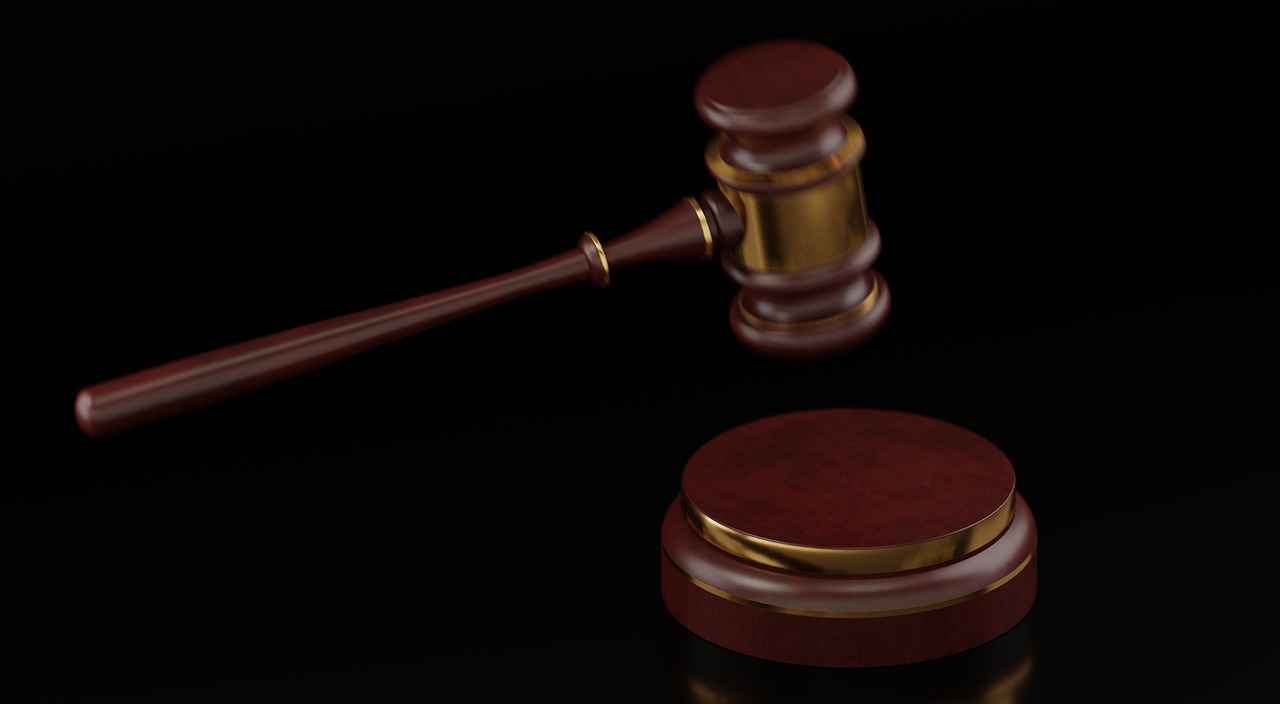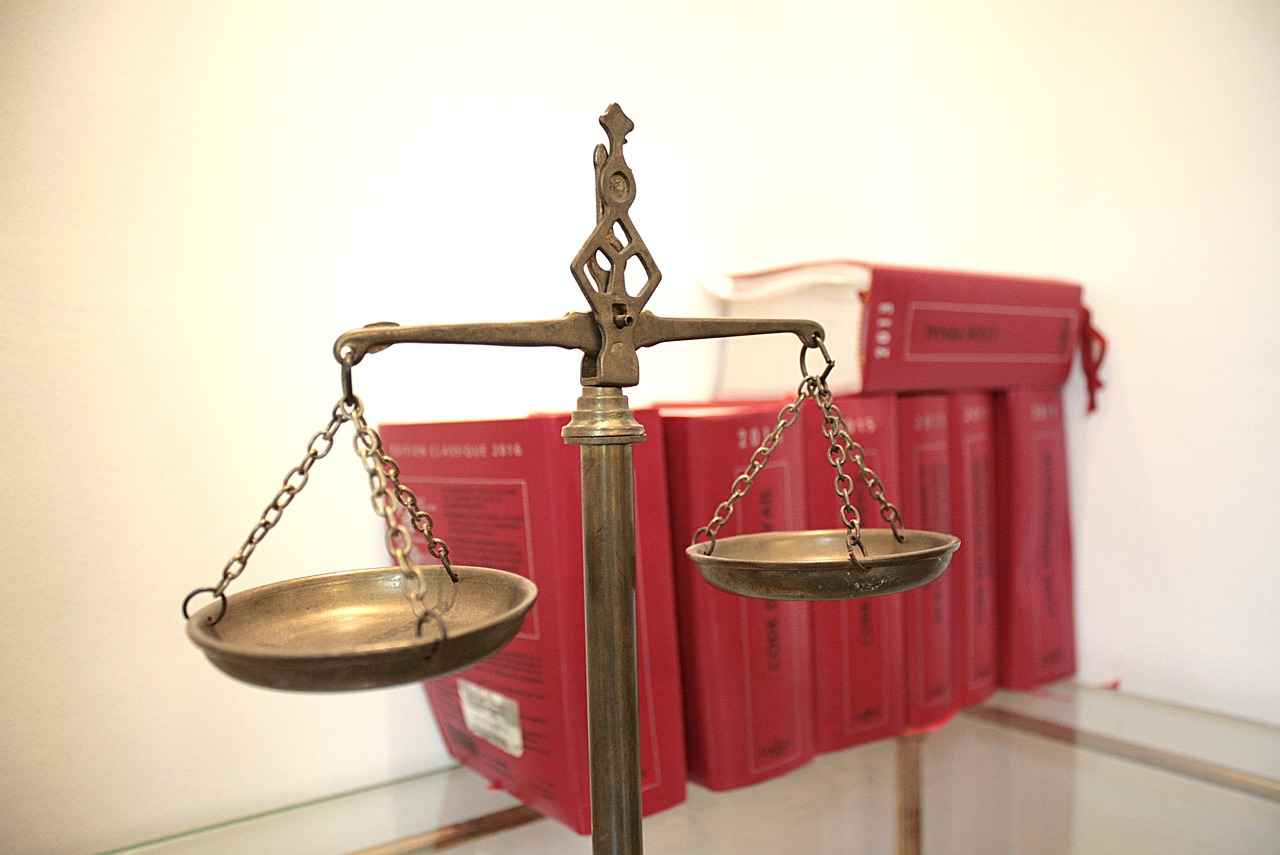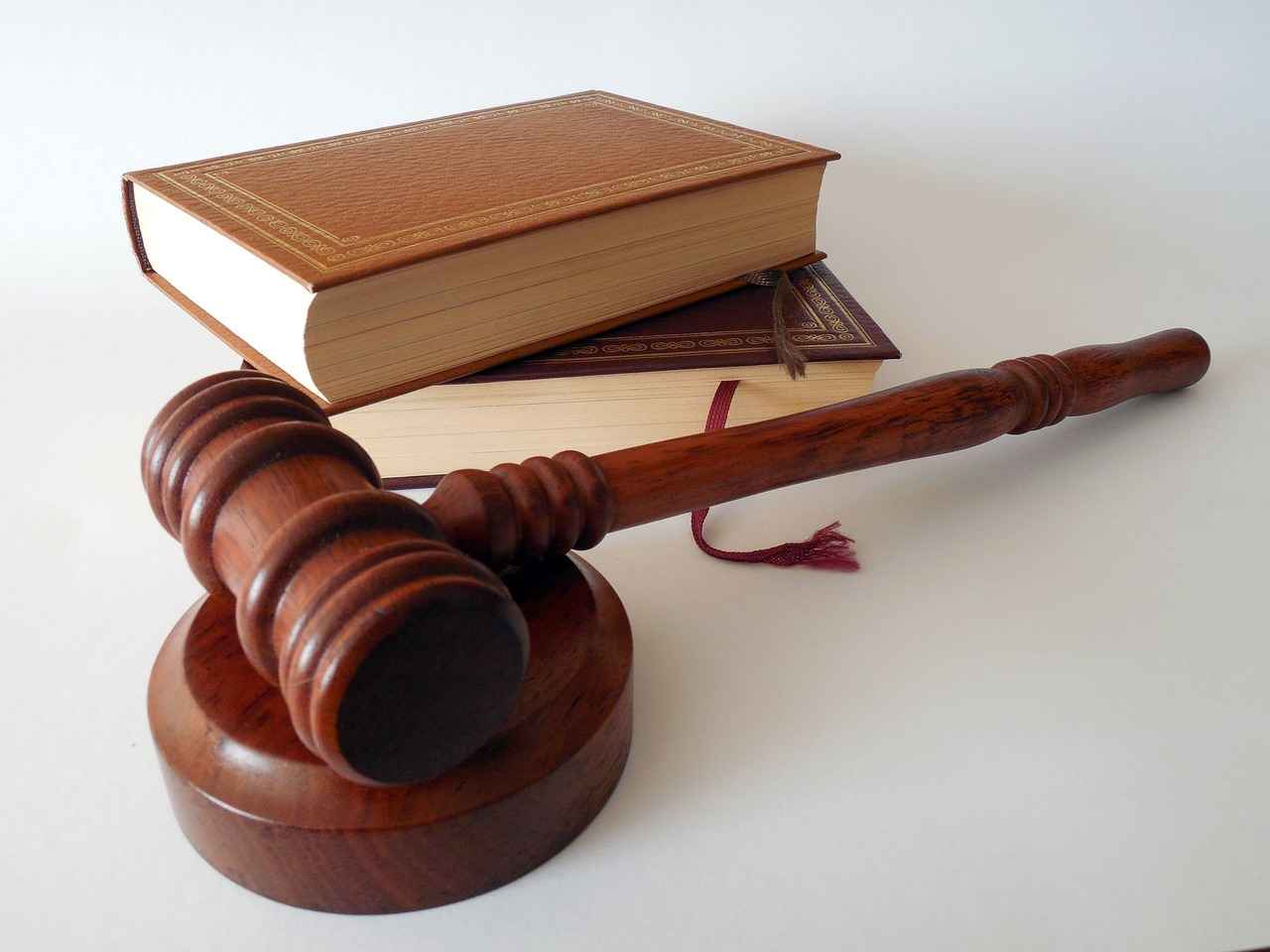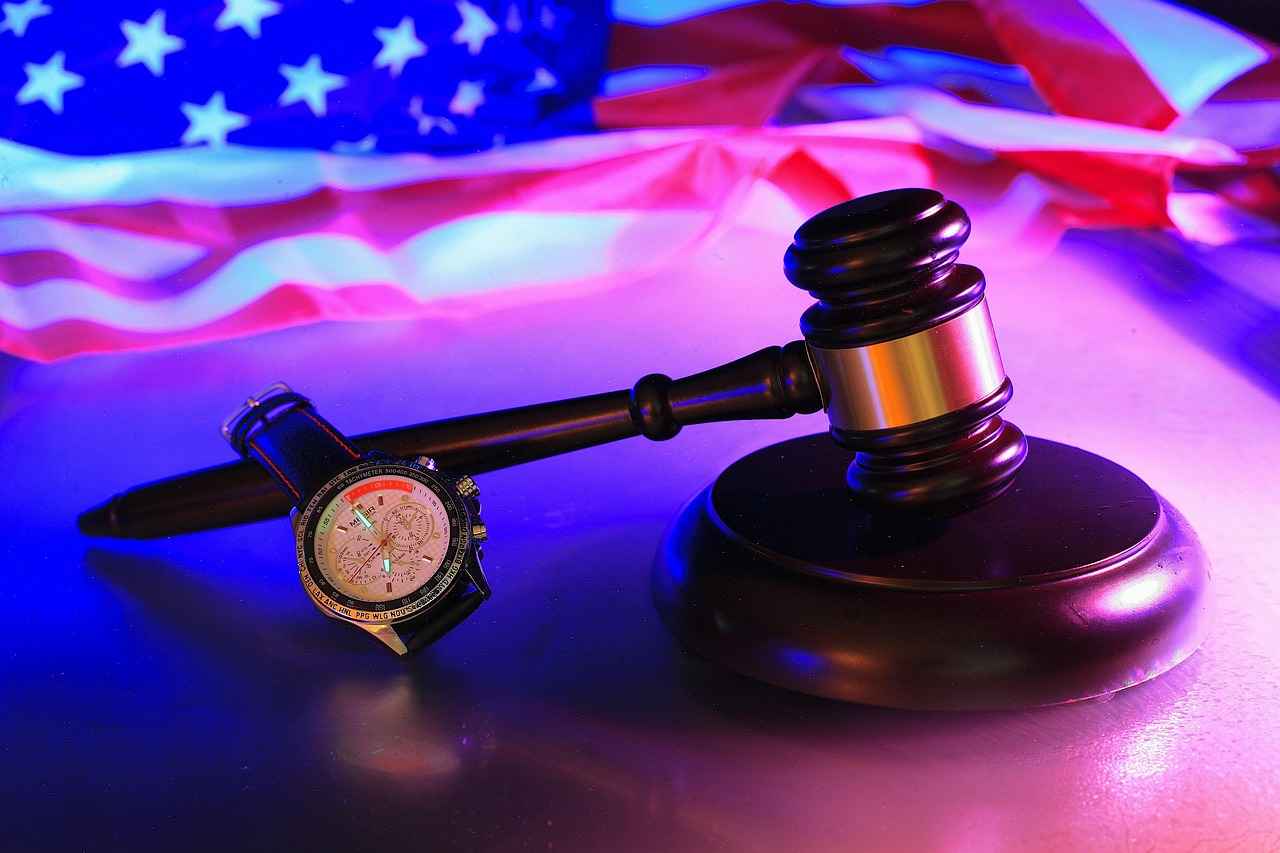This article explores the various types of legal cases in the U.S. and provides expert guidance on finding qualified lawyers in Las Vegas, Nevada, tailored to your specific legal needs.
Personal injury cases are prevalent in the U.S. and involve individuals seeking compensation for injuries caused by another party’s negligence. These cases can stem from car accidents, slip and falls, or workplace incidents. To find the right attorney for personal injury claims, consider looking for professionals with a proven track record in similar cases. Check their success rates and client testimonials. Websites like Avvo and Martindale-Hubbell can provide valuable insights into an attorney’s reputation.
Medical malpractice occurs when healthcare providers fail to meet the standard of care, resulting in harm to patients. These cases can be complicated, requiring specialized legal knowledge. When seeking an attorney for medical malpractice, look for those with experience in healthcare law. Verify their credentials and ask for case studies that demonstrate their expertise in handling similar claims. It’s crucial to find a lawyer who understands the medical field and has a network of medical experts to support your case.
Breach of contract cases arise from disputes over the failure to fulfill contractual obligations. Whether you are a business owner or an individual, hiring an attorney with expertise in contract law is essential. Look for lawyers who specialize in commercial litigation and have experience with the specific type of contract involved. Checking their background in negotiations and settlements can also provide insight into their capabilities.
Property disputes can involve boundary disagreements, ownership conflicts, or landlord-tenant issues. To resolve these conflicts, it is vital to find a knowledgeable real estate attorney. Look for attorneys who are members of relevant professional organizations, such as the American Bar Association’s Real Property Section. Additionally, seek out reviews from past clients that highlight their negotiation skills and effectiveness in similar cases.
Landlord-tenant disputes often arise over lease agreements, evictions, and property conditions. When searching for an attorney experienced in housing law, consider those who have worked with both landlords and tenants to provide a balanced perspective. Resources like local tenant advocacy groups can also recommend reputable attorneys who specialize in this area.
Defamation cases, which include libel and slander, involve false statements that harm an individual’s reputation. An experienced attorney in defamation law can help you understand your rights and pursue legal action. Look for lawyers who have successfully handled defamation cases and have a strong understanding of media law. Additionally, consider their ability to negotiate settlements outside of court, as many defamation cases can be resolved this way.
Employment disputes encompass a range of issues, including discrimination, wrongful termination, and harassment. Finding a specialized attorney in employment law is crucial for protecting your workplace rights. Consider attorneys who have a background in human resources or who have worked for labor unions. This experience can provide them with unique insights into employment law and help them advocate effectively on your behalf.
Product liability cases involve injuries caused by defective products. To find an attorney experienced in this area, look for those with a background in personal injury law and a track record of handling product liability claims. It’s important to choose a lawyer who understands the complexities of manufacturing standards and regulations, as these factors can significantly influence the outcome of your case.
Wrongful death claims arise when negligence or misconduct causes a person’s death. Understanding how to find a compassionate attorney who specializes in wrongful death cases can assist families in seeking justice and compensation. Look for lawyers who have demonstrated success in similar cases and who approach these sensitive matters with empathy and professionalism.
Class action lawsuits involve a group of individuals with similar claims against a common defendant. Finding an attorney with experience in class actions is vital for effective representation. Look for legal professionals who have previously led successful class action suits and have the resources to handle large-scale litigation.
Criminal cases, including theft, assault, and drug offenses, require skilled legal representation. To find a competent criminal defense attorney, look for those with experience in the specific type of crime you are facing. Check their background in trial defense and their success rates in similar cases. A good defense attorney should also be able to provide you with a clear strategy for your case.
Family law cases, including divorce and child custody disputes, require sensitive and knowledgeable legal guidance. Finding an attorney who specializes in family law can help you navigate these challenging situations. Look for lawyers who are empathetic and have a strong track record in family court. Additionally, consider their ability to mediate disputes, as this can often lead to more amicable resolutions.
Bankruptcy cases offer individuals a way to manage overwhelming debt. Knowing how to find a qualified bankruptcy attorney can provide the guidance needed to navigate this complex process. Look for attorneys who specialize in bankruptcy law and have a deep understanding of the various chapters of bankruptcy. It’s also beneficial to find someone who can provide financial counseling in addition to legal representation.

Understanding Personal Injury Cases
Personal injury cases represent a significant area of law, where individuals seek compensation for injuries sustained due to another party’s negligence. These cases can arise from a variety of incidents, including car accidents, slip and falls, workplace injuries, and more. Understanding the nuances of personal injury law is essential for anyone considering pursuing a claim.
When navigating personal injury cases, it is crucial to find the right attorney who specializes in this field. The right attorney will not only understand the complexities of personal injury law but will also have a proven track record of successfully handling similar cases. Here are some key factors to consider when searching for a qualified personal injury attorney:
- Experience and Specialization: Look for attorneys who specialize in personal injury law and have extensive experience in handling cases similar to yours. An attorney with a strong background in personal injury will be familiar with the intricacies of the law and the common tactics that insurance companies use to minimize payouts.
- Reputation: Research potential attorneys through online reviews, testimonials, and professional ratings. Websites like Avvo and Martindale-Hubbell can provide insights into an attorney’s reputation and peer reviews.
- Initial Consultation: Many personal injury attorneys offer free consultations. Use this opportunity to discuss your case and gauge the attorney’s understanding and approach. Pay attention to how they communicate and whether they listen to your concerns.
- Contingency Fees: Most personal injury attorneys work on a contingency fee basis, meaning they only get paid if you win your case. Ensure you understand the fee structure before signing any agreements.
- Communication: Effective communication is vital in any attorney-client relationship. Ensure that the attorney you choose is responsive and willing to keep you informed throughout the process.
In addition to these factors, it is also essential to be aware of potential red flags when hiring a personal injury attorney. Be cautious of attorneys who guarantee a specific outcome or those who pressure you into making quick decisions. A trustworthy attorney will provide realistic expectations based on the details of your case.
Ultimately, personal injury cases can be complex and emotionally taxing. Having the right legal representation can significantly impact the outcome of your case. By carefully considering the factors mentioned above, you can find an attorney who will advocate for your rights and help you achieve the compensation you deserve.

Medical Malpractice: Navigating Complex Claims
Medical malpractice cases are among the most intricate and sensitive types of legal claims in the United States. These cases occur when healthcare professionals, including doctors, nurses, and hospitals, fail to provide the standard of care expected in their field, resulting in significant harm to patients. The complexities involved in these cases demand specialized legal expertise, making it essential for victims to find a qualified attorney who is well-versed in medical malpractice law.
To successfully navigate these claims, it is crucial to understand the elements that constitute medical malpractice. These typically include:
- Duty of Care: Establishing that the healthcare provider owed a duty to the patient.
- Breach of Duty: Demonstrating that the provider failed to meet the standard of care.
- Causation: Proving that the breach directly resulted in harm or injury.
- Damages: Showing that the patient suffered damages, which could be physical, emotional, or financial.
Given these requirements, finding an attorney with a proven track record in medical malpractice cases is vital. Here are some expert tips on how to identify the right legal representation:
1. Look for Specialization: - Seek attorneys who specialize in medical malpractice law. Their focused expertise can significantly impact the outcome of your case. 2. Check Credentials: - Verify their education, years of experience, and any specific certifications in medical malpractice or personal injury law. 3. Review Case History: - Ask about their past case results. Successful settlements or verdicts in similar cases can indicate their capability. 4. Read Reviews: - Look for online reviews and testimonials from previous clients. Platforms like Avvo, Martindale-Hubbell, and Google Reviews can provide insights into their reputation. 5. Initial Consultations: - Take advantage of free consultations to gauge their understanding of your case and their communication style.
Additionally, be aware of red flags when selecting an attorney:
- Overpromising results without a solid basis.
- Lack of transparency regarding fees and costs.
- Inability to provide references or past case examples.
In metropolitan areas like New York City, Los Angeles, and Chicago, the legal landscape can be competitive. Therefore, leveraging local bar associations and legal directories can be beneficial in finding qualified attorneys. Networking with healthcare professionals or individuals who have previously navigated similar cases can also yield valuable recommendations.
In summary, medical malpractice cases require meticulous attention to detail and a thorough understanding of both medical and legal principles. By following the outlined strategies and being diligent in your search for a qualified attorney, you can significantly enhance your chances of achieving a favorable outcome in your medical malpractice claim.

Breach of Contract: Protecting Your Rights
Breach of contract cases arise when one party fails to fulfill their obligations as outlined in a legally binding agreement. Such disputes can significantly impact businesses and individuals alike, making it essential to understand how to navigate these complex legal waters. In this section, we will explore the nuances of breach of contract cases and provide guidance on hiring an attorney with expertise in contract law to ensure your interests are protected.
When entering into a contract, whether for a business deal, real estate transaction, or personal agreement, it is crucial to recognize the terms and conditions that bind the parties involved. A breach occurs when one party either fails to perform their duties or performs them inadequately. Understanding the types of breaches—material and minor—is vital. A material breach significantly undermines the contract’s purpose, while a minor breach may allow the contract to remain in effect but still warrants remedies.
To effectively protect your rights in a breach of contract case, hiring an attorney who specializes in contract law is paramount. Here are some steps to consider when seeking legal representation:
- Research and Referrals: Start by asking friends, family, or business associates for recommendations. Online platforms like Avvo and Martindale-Hubbell can also provide reviews and ratings of attorneys in your area.
- Check Credentials: Look for attorneys with a proven track record in contract law. Verify their education, years of experience, and any specialized certifications.
- Initial Consultations: Many attorneys offer free initial consultations. Use this opportunity to gauge their understanding of your case and their approach to handling it.
- Discuss Fees: Be clear about the attorney’s fee structure. Some may charge hourly rates, while others may work on a contingency basis. Understanding this upfront can prevent future misunderstandings.
- Communication Skills: Effective communication is key in legal matters. Ensure that the attorney is approachable and willing to explain complex legal terms in a way that you can understand.
Red flags to watch out for include attorneys who make unrealistic promises about the outcome of your case or those who seem more interested in quick resolutions than in your best interests. Additionally, if an attorney is unresponsive or difficult to reach during initial consultations, it may indicate potential issues down the line.
In conclusion, navigating a breach of contract case requires a thorough understanding of legal principles and a skilled attorney to advocate for your rights. By conducting diligent research and following the steps outlined above, you can find a trustworthy legal professional who will help you achieve a favorable resolution.

Property Disputes: Resolving Conflicts Effectively
Property disputes can arise from a variety of issues, including boundary disagreements, ownership conflicts, and title issues. These disputes can escalate quickly, leading to significant legal battles that can be both time-consuming and costly. Therefore, it is essential to understand how to navigate these conflicts and find a knowledgeable real estate attorney who can facilitate effective resolution.
When facing a property dispute, the first step is to identify the nature of the conflict. Is it a disagreement over property lines, a question of ownership rights, or a dispute regarding the terms of a lease? Understanding the specifics of your situation will help you communicate effectively with potential attorneys.
To find a qualified real estate attorney, consider the following methods:
- Referrals: Ask friends, family, or colleagues if they can recommend a real estate attorney they trust. Personal experiences can provide valuable insights.
- Online Directories: Utilize platforms like Avvo or FindLaw to search for attorneys specializing in real estate law. These sites often include ratings, reviews, and detailed profiles.
- State Bar Association: Check your state’s bar association website for a list of licensed attorneys in your area. Many state bar websites offer referral services that can connect you with qualified professionals.
When evaluating potential attorneys, look for the following credentials:
- Experience: Choose an attorney with a proven track record in handling property disputes similar to yours.
- Specialization: Ensure they specialize in real estate law, as this area has its own unique complexities.
- Client Reviews: Read testimonials and reviews to gauge their reputation and success rate in resolving property disputes.
It’s also crucial to be aware of red flags when hiring an attorney:
- Lack of Communication: If the attorney is unresponsive during initial consultations, it may indicate poor communication skills.
- High Pressure Tactics: Be wary of attorneys who pressure you to make quick decisions or sign contracts without fully understanding the terms.
- Unclear Fee Structures: Ensure that the attorney provides a clear explanation of their fees and billing practices to avoid unexpected costs.
After selecting a real estate attorney, prepare for your initial consultation by gathering all relevant documents related to your property dispute. This may include property deeds, survey maps, correspondence with the opposing party, and any other documentation that can help your attorney understand the situation.
During the consultation, ask questions about their approach to resolving property disputes, their experience with similar cases, and their strategies for negotiation or litigation. A good attorney will provide clear, actionable advice tailored to your specific situation.
In conclusion, property disputes can be complex and emotionally charged. However, by taking the time to find a knowledgeable real estate attorney and preparing adequately for consultations, you can enhance your chances of resolving conflicts effectively. Remember that early intervention can often prevent disputes from escalating, so don’t hesitate to seek legal advice as soon as issues arise.

Landlord-Tenant Disputes: Understanding Your Rights
Landlord-tenant disputes are prevalent issues that can arise in rental agreements, often leading to misunderstandings and legal conflicts. These disputes typically revolve around various aspects of the lease, including eviction processes, property maintenance, and security deposits. It is essential for both landlords and tenants to understand their rights and responsibilities to navigate these challenges effectively.
One common area of contention is the lease agreement. This legally binding document outlines the terms of the rental arrangement, including rent amount, payment due dates, and maintenance responsibilities. Tenants should carefully review their lease to ensure that the landlord is fulfilling their obligations, such as providing a safe and habitable living environment. If a landlord fails to maintain the property, tenants may have grounds to withhold rent or terminate the lease, but they must follow the appropriate legal procedures.
Another significant issue is eviction. Landlords may seek to evict tenants for various reasons, such as non-payment of rent or violation of lease terms. However, eviction is a legal process that requires landlords to follow specific procedures, such as providing proper notice and filing an eviction lawsuit. Tenants facing eviction should consult with an attorney experienced in housing law to understand their rights and explore potential defenses.
Property conditions can also lead to disputes. Tenants have the right to live in a property that meets basic health and safety standards. If a landlord neglects necessary repairs, such as plumbing issues or pest infestations, tenants can request repairs in writing. If the landlord fails to act, tenants may have the right to take further legal action, including seeking damages or terminating the lease.
To effectively navigate these disputes, it is crucial to find a qualified attorney who specializes in housing law. When searching for legal representation, consider the following tips:
- Research local attorneys: Look for lawyers in your area who have experience with landlord-tenant disputes. Online directories, bar association referrals, and legal aid organizations can be valuable resources.
- Check credentials: Verify the attorney’s qualifications, including their education, experience, and any specialized certifications in housing law.
- Read reviews: Look for client testimonials and reviews to gauge the attorney’s reputation and success rate in similar cases.
- Schedule consultations: Many attorneys offer free initial consultations. Use this opportunity to discuss your case and assess whether the attorney is a good fit for your needs.
- Discuss fees: Understand the attorney’s fee structure, including hourly rates and any potential additional costs. Make sure you are comfortable with the financial arrangements before proceeding.
Additionally, be aware of red flags when hiring an attorney. Avoid lawyers who make unrealistic promises or guarantees about the outcome of your case. It’s also essential to steer clear of attorneys who are unresponsive or fail to communicate effectively. A good attorney should keep you informed and engaged throughout the legal process.
In conclusion, landlord-tenant disputes can be complex and challenging to navigate. Understanding your rights and responsibilities is the first step toward resolving these issues. Consulting with an experienced attorney can provide valuable guidance and support, ensuring that you are well-equipped to handle any disputes that may arise.

Defamation Cases: Protecting Your Reputation
Defamation cases are critical in protecting an individual’s reputation, which can be severely damaged by false statements. Defamation is categorized into two primary forms: libel, which refers to written statements, and slander, which pertains to spoken statements. Both forms can lead to significant emotional distress and financial loss for the victim, making it essential to understand how to pursue legal action effectively.
When considering a defamation claim, the first step is to establish that the statement in question is false and damaging. This means that the statement must not only be untrue but also must have been made to a third party, causing harm to the individual’s reputation. If you believe you have been a victim of defamation, consulting with an experienced attorney is crucial. They can help you navigate the complexities of the law and determine the viability of your case.
Finding the right attorney for a defamation case involves several key steps:
- Research Specialization: Look for attorneys who specialize in defamation or media law. Their expertise will ensure they are well-versed in the nuances of these cases.
- Check Credentials: Verify the attorney’s credentials, including their education, experience, and any relevant certifications. A lawyer with a strong background in defamation law will be more equipped to handle your case.
- Read Reviews: Client testimonials and online reviews can provide insight into an attorney’s reputation and success rate in handling defamation cases.
- Consultation: Schedule consultations with potential attorneys. This will give you the opportunity to discuss your case and assess their communication style and approach.
- Discuss Fees: Understand the fee structure before hiring an attorney. Some may work on a contingency basis, while others may charge hourly rates. Ensure that you are comfortable with the financial arrangement.
It is also vital to avoid red flags when selecting an attorney. Be cautious of lawyers who guarantee specific outcomes, as this is unrealistic in legal cases. Additionally, if an attorney lacks experience in defamation law or does not seem genuinely interested in your case, it may be wise to seek representation elsewhere.
In major metropolitan areas like New York City, Los Angeles, and Chicago, the competition among attorneys is fierce, which can be advantageous for clients. Many law firms in these cities offer free initial consultations, allowing you to gauge their expertise without financial commitment. Utilize online platforms such as Avvo or FindLaw to compare lawyers based on their specialties and client reviews.
Ultimately, a successful defamation case hinges on the ability to prove that the false statements were made with negligence or malice, particularly if you are a public figure. Therefore, having a knowledgeable attorney who understands the legal landscape and can effectively advocate on your behalf is invaluable. Protecting your reputation is paramount, and with the right legal support, you can pursue justice and seek compensation for any damages incurred.

Employment Disputes: Navigating Workplace Issues
Employment disputes can arise from various situations in the workplace, leading to significant stress and uncertainty for employees. Issues such as discrimination, wrongful termination, harassment, and wage disputes are common in today’s work environment. Understanding your rights and having access to a knowledgeable attorney specializing in employment law is essential to effectively navigate these challenges.
When facing an employment dispute, the first step is to identify the nature of the issue. For instance, discrimination can occur based on race, gender, age, or disability, and it can manifest in various forms, such as unequal pay or unfair treatment in promotions. Wrongful termination refers to being fired for illegal reasons, such as retaliation for reporting workplace violations or discrimination. Having an attorney who understands the nuances of these laws can make a significant difference in the outcome of your case.
To find a qualified employment attorney, consider the following steps:
- Research Online: Use legal directories like Avvo or Nolo to find lawyers specializing in employment law in your area.
- Check Credentials: Look for attorneys with relevant experience, such as those who have handled cases similar to yours. Verify their education, bar association membership, and any certifications in employment law.
- Read Reviews: Client testimonials and reviews can provide insight into an attorney’s reputation and effectiveness. Websites like Yelp or Google Maps can be helpful.
- Consultation: Many attorneys offer free initial consultations. Use this opportunity to discuss your case and gauge their expertise and communication style.
- Ask Questions: Inquire about their experience with your specific issue, their approach to handling cases, and their fee structures. Understanding these factors can help you make an informed decision.
It is crucial to be aware of red flags when hiring an attorney. Avoid those who make unrealistic promises about the outcome of your case, lack transparency about fees, or seem disinterested in your situation. A competent attorney will provide a realistic assessment of your case and outline potential strategies for success.
In major metropolitan areas like New York City, Los Angeles, and Chicago, employment law can be particularly complex due to the diverse workforce and varying local regulations. Therefore, it is even more critical to find an attorney who is familiar with both federal and state laws governing employment rights.
In summary, navigating employment disputes requires careful consideration and the right legal representation. By taking the time to research and find a qualified attorney, you can protect your rights and seek justice in the workplace.

Product Liability: Holding Manufacturers Accountable
Product liability cases are critical in ensuring that manufacturers, distributors, and retailers are held accountable for the safety of their products. These cases arise when consumers suffer injuries due to defective products, which can range from faulty electronics to contaminated food items. Understanding how to navigate the complexities of product liability law is essential for anyone seeking justice and compensation for their injuries.
When pursuing a product liability claim, it is vital to establish that the product was indeed defective and that this defect directly caused your injury. There are generally three types of defects recognized in product liability cases:
- Design Defects: These occur when the product’s design is inherently unsafe, even if manufactured correctly.
- Manufacturing Defects: These happen during the production process, making an otherwise safe design dangerous.
- Marketing Defects: These involve insufficient warnings or instructions regarding the product’s use, leading to misuse and injury.
Finding an attorney experienced in product liability is crucial for effectively navigating these claims. Here are some steps to consider when searching for a qualified lawyer:
- Research Local Attorneys: Start by searching online for lawyers who specialize in product liability cases in your area. Websites like Avvo and FindLaw provide listings and reviews of attorneys based on their practice areas.
- Check Credentials: Look for attorneys with specific experience in handling product liability cases. Verify their education, years of practice, and any relevant certifications.
- Read Reviews: Client testimonials can provide insight into an attorney’s track record and how they handle cases. Look for patterns in reviews that highlight communication, success rates, and client satisfaction.
- Consult Multiple Attorneys: Schedule consultations with several lawyers to discuss your case. This will help you gauge their expertise and determine if you feel comfortable working with them.
- Ask the Right Questions: During consultations, inquire about their experience with similar cases, their approach to handling product liability claims, and their fee structure. Understanding how they plan to tackle your case is important.
Be wary of red flags when selecting an attorney. Avoid those who:
- Promise guaranteed results, as no attorney can assure a specific outcome.
- Pressure you into signing a contract immediately without allowing you to review it thoroughly.
- Have numerous complaints or disciplinary actions against them.
In product liability cases, time is of the essence due to statutes of limitations that vary by state. Therefore, it is crucial to act promptly and seek legal representation as soon as possible after an injury occurs. A knowledgeable attorney can help gather evidence, consult with experts, and build a strong case on your behalf.
Ultimately, holding manufacturers accountable not only seeks justice for your injuries but also promotes safer products for all consumers. By understanding the nuances of product liability law and knowing how to find the right attorney, you can navigate the legal system more effectively and increase your chances of a successful outcome.

Wrongful Death Claims: Seeking Justice for Loved Ones
Wrongful death claims are a profound and sensitive area of law that arise when an individual loses their life due to the negligence or intentional misconduct of another party. These claims can stem from various situations, including automobile accidents, medical malpractice, workplace incidents, and criminal actions. The loss of a loved one is devastating, and seeking justice through a wrongful death claim can provide some measure of closure and financial support for the surviving family members.
To successfully navigate a wrongful death claim, it is essential to find a compassionate and experienced attorney who specializes in this area of law. Here are some key factors to consider when searching for the right legal representation:
- Experience and Specialization: Look for attorneys who have a proven track record in handling wrongful death cases. Their experience can significantly affect the outcome of your claim.
- Reputation: Research the attorney’s reputation through online reviews, testimonials, and referrals from friends or family. A good reputation often indicates reliability and effectiveness.
- Compassion and Understanding: Dealing with the loss of a loved one is emotionally challenging. Choose an attorney who demonstrates empathy and a genuine desire to help you through this difficult time.
- Transparent Communication: Ensure that the attorney communicates clearly and regularly. You should feel comfortable asking questions and discussing your case without hesitation.
- Fee Structure: Discuss the attorney’s fee structure upfront. Many wrongful death attorneys work on a contingency fee basis, meaning they only get paid if you win the case. Make sure you understand any potential costs involved.
When you have identified a few potential attorneys, schedule consultations to discuss your case. During these meetings, ask about their approach to handling wrongful death claims, their understanding of the laws in your state, and their strategies for pursuing justice on your behalf. This initial interaction can help you gauge whether they are the right fit for your needs.
In addition to personal referrals, there are several platforms and resources available to help you find qualified attorneys. Websites such as Avvo and FindLaw provide directories of lawyers along with ratings and reviews. Additionally, state bar associations often have referral services that can connect you with attorneys specializing in wrongful death claims.
It is also crucial to be aware of red flags that may indicate an attorney is not the right choice for your case. These can include:
- Unclear fee structures or hidden costs.
- Lack of responsiveness or poor communication.
- Pressure to settle quickly without thoroughly investigating the case.
- Inexperience with wrongful death claims or a general practice approach.
In summary, wrongful death claims are complex and emotionally charged. Finding a qualified attorney who understands the intricacies of these cases can make a significant difference in the outcome. By focusing on experience, reputation, and communication, families can seek justice for their loved ones while navigating the legal system with compassion and support.

Class Action Lawsuits: Joining Forces for Justice
Class action lawsuits serve as a powerful legal tool that allows a group of individuals with similar grievances to unite against a common defendant, typically a corporation or an organization. These lawsuits can arise in various contexts, such as consumer protection, employment disputes, and environmental issues. When a class action is initiated, it not only streamlines the legal process but also amplifies the voices of those who might not have the resources to pursue individual claims. However, navigating the complexities of class action lawsuits requires specialized legal expertise.
Finding an attorney with extensive experience in class action litigation is crucial for effective representation. Here are some key considerations and steps to take when searching for the right legal professional:
- Research Credentials: Look for attorneys who specialize in class action lawsuits and have a proven track record of successful outcomes. Check their educational background, years of experience, and any accolades they may have received in the field.
- Evaluate Experience: It’s essential to select attorneys who have handled cases similar to yours. Inquire about their experience with class actions specifically, as these cases often require different strategies compared to individual lawsuits.
- Seek Referrals: Ask friends, family, or colleagues if they can recommend attorneys who have successfully managed class action cases. Personal referrals can provide insights into the attorney’s style and effectiveness.
- Utilize Online Platforms: Websites like Avvo, Martindale-Hubbell, and the American Bar Association can help you find qualified attorneys in your area. These platforms often include reviews and ratings from previous clients, which can be invaluable in your decision-making process.
- Assess Communication Skills: During initial consultations, pay attention to how well the attorney communicates complex legal concepts. A good attorney should be able to explain the class action process clearly and answer any questions you may have.
- Discuss Fees: Class action attorneys often work on a contingency fee basis, meaning they only get paid if you win the case. Make sure to discuss their fee structure upfront to avoid any surprises later on.
- Check for Red Flags: Be wary of attorneys who make unrealistic promises or seem more focused on their fees than your case. A trustworthy attorney will provide a realistic assessment of your situation and the potential outcomes.
Class action lawsuits can be lengthy and complex, so having an experienced attorney by your side is essential for navigating the process effectively. By following these guidelines, you can find a qualified legal representative who will advocate for your rights and help you seek justice.

Criminal Defense: Protecting Your Freedom
In the realm of criminal law, the stakes are incredibly high. When facing charges such as theft, assault, or drug offenses, it is essential to secure skilled legal representation. The complexity of criminal cases necessitates the expertise of a capable attorney who can navigate the intricacies of the legal system and advocate for your rights.
Finding a competent criminal defense attorney can be a daunting task, but understanding the process can significantly ease your search. Here are some key strategies to consider:
- Research and Referrals: Start by asking friends, family, or colleagues for recommendations. Personal referrals can often lead you to trustworthy attorneys with proven track records.
- Online Reviews and Ratings: Utilize platforms like Avvo, Martindale-Hubbell, or Google Reviews to gauge the reputation of potential attorneys. Look for those with high ratings and positive feedback from former clients.
- Consultation Meetings: Many attorneys offer free initial consultations. Use this opportunity to ask about their experience, particularly with cases similar to yours, and their approach to defense.
- Check Credentials: Ensure the attorney is licensed to practice in your state and has no disciplinary actions against them. Membership in professional organizations, such as the National Association of Criminal Defense Lawyers, can also be a positive sign.
- Assess Communication Style: During your consultations, pay attention to how well the attorney communicates. A good lawyer should be able to explain legal concepts in a way that you can understand and should be responsive to your questions.
- Evaluate Experience: Look for an attorney with specific experience in criminal defense. The legal landscape is vast, and an attorney specializing in criminal law will have the necessary skills to handle your case effectively.
In addition to these strategies, it’s important to be aware of red flags when hiring a criminal defense attorney:
- High-Pressure Sales Tactics: Be cautious of attorneys who pressure you into hiring them on the spot. A reputable attorney will give you the time you need to make an informed decision.
- Lack of Transparency: If an attorney is vague about their fees or the potential outcomes of your case, consider looking elsewhere. A trustworthy lawyer will provide clear information regarding their billing practices and the legal process.
- Unprofessional Behavior: Pay attention to how the attorney interacts with you and their staff. Professionalism is critical in legal matters, and any signs of unprofessional behavior should raise concerns.
Whether you’re facing charges in New York City, Los Angeles, Chicago, or other major metropolitan areas, following these guidelines can help you find the right criminal defense attorney. Remember, your freedom and future may depend on the quality of representation you secure.
In summary, navigating the criminal justice system can be overwhelming, but with the right approach to finding a qualified attorney, you can ensure that your rights are protected. Take the time to research, consult, and evaluate potential attorneys, and don’t hesitate to seek out the best representation available to you.

Family Law: Navigating Divorce and Child Custody
Family law encompasses a range of legal issues that affect the family unit, with divorce and child custody disputes being among the most common and emotionally charged cases. These situations require not only legal expertise but also a deep understanding of the emotional and psychological dynamics involved. When facing such challenges, it is crucial to seek the guidance of a qualified attorney who specializes in family law.
Finding the right family law attorney can significantly impact the outcome of your case. Here are some practical steps and considerations to help you in your search:
- Specialization: Look for attorneys who specifically focus on family law. This ensures they are well-versed in the latest laws and regulations governing divorce and child custody.
- Experience: An attorney with years of experience in family law cases will have a better understanding of the court system and the nuances of different judges, which can be beneficial for your case.
- Reputation: Research online reviews, testimonials, and ratings from former clients. Websites like Avvo and Leagle can provide insights into an attorney’s track record.
- Consultation: Many attorneys offer free initial consultations. Use this opportunity to gauge their expertise, communication style, and whether you feel comfortable with them.
- Fees: Understand the fee structure upfront. Some attorneys charge hourly rates, while others may work on a flat fee basis. Be sure to clarify any additional costs that may arise during the process.
In major metropolitan areas like New York City, Los Angeles, and Chicago, the competition among family law attorneys can be intense. Therefore, it is essential to not only consider the factors mentioned above but also to look for attorneys who are active in local family law associations. Membership in organizations such as the American Academy of Matrimonial Lawyers or state-specific family law groups can indicate a commitment to staying updated on legal trends and best practices.
Another crucial aspect to consider is the attorney’s approach to conflict resolution. Many family law cases can be resolved through mediation or collaborative law, which can be less adversarial and more cost-effective than traditional litigation. An attorney who encourages these methods may help you achieve a more amicable resolution, especially when children are involved.
When it comes to child custody disputes, it is essential to have an attorney who understands the complexities of custody arrangements. They should be knowledgeable about various custody types, including joint custody, sole custody, and visitation rights. Furthermore, they should advocate for the best interests of the child, which is the primary consideration in custody cases. This may involve gathering evidence, interviewing witnesses, and potentially working with child psychologists to present a comprehensive case.
In conclusion, navigating family law matters such as divorce and child custody requires careful consideration and the right legal support. By taking the time to find a qualified attorney, you can ensure that your rights are protected and that you receive the guidance necessary to make informed decisions during this challenging time.

Bankruptcy: Finding Relief from Debt
In today’s challenging economic climate, many individuals find themselves grappling with overwhelming debt. Bankruptcy serves as a legal remedy that allows individuals to reorganize or eliminate their debts, providing a fresh start. However, navigating the bankruptcy process can be complex, making it essential to seek the guidance of a qualified bankruptcy attorney.
When searching for a bankruptcy attorney, consider the following steps to ensure you find a qualified professional who can help you through this intricate process:
- Research and Referrals: Start by asking friends, family, or financial advisors for recommendations. Personal referrals can provide insight into an attorney’s effectiveness and professionalism.
- Online Reviews and Ratings: Utilize platforms like Avvo, Google Reviews, and Yelp to read reviews from previous clients. Look for attorneys with a strong track record in bankruptcy cases.
- Check Credentials: Verify the attorney’s credentials, including their education, experience, and any special certifications in bankruptcy law. Membership in organizations such as the American Bankruptcy Institute can also indicate a commitment to the field.
- Consultation: Schedule consultations with potential attorneys. Many offer free initial consultations, allowing you to discuss your financial situation and gauge their expertise and approach.
- Discuss Fees: Understand the attorney’s fee structure upfront. Some attorneys charge a flat fee for bankruptcy cases, while others may charge hourly. Ensure there are no hidden costs involved.
During your consultation, ask specific questions to assess their knowledge and experience:
- How many bankruptcy cases have you handled?
- What is your success rate with bankruptcy filings?
- What types of bankruptcy do you specialize in (Chapter 7, Chapter 13, etc.)?
- How will you communicate with me throughout the process?
- What documentation will I need to provide?
Be wary of red flags that may indicate an attorney is not suitable for your needs:
- Lack of Transparency: If an attorney is evasive about their fees or services, this could be a warning sign.
- High-Pressure Sales Tactics: A reputable attorney will not rush you into making a decision.
- Poor Communication: If the attorney is difficult to reach or does not respond promptly, consider this a red flag.
In addition to finding a qualified attorney, it’s crucial to understand the different types of bankruptcy filings:
- Chapter 7: This type of bankruptcy involves liquidating assets to pay off debts. It is ideal for individuals with limited income.
- Chapter 13: This allows individuals to create a repayment plan to pay back debts over time, often preserving assets.
Ultimately, finding the right bankruptcy attorney is a critical step in regaining control over your financial future. By following these guidelines, you can navigate the complexities of bankruptcy law with confidence, ensuring that you have the support and expertise needed to achieve a successful outcome.
Frequently Asked Questions
- What types of cases can lawyers in Las Vegas handle?
Lawyers in Las Vegas can assist with a variety of cases, including personal injury, medical malpractice, breach of contract, property disputes, landlord-tenant issues, defamation, employment disputes, product liability, wrongful death claims, class action lawsuits, criminal defense, family law, and bankruptcy.
- How do I choose the right attorney for my case?
Choosing the right attorney involves researching their experience, specialization, and client reviews. It’s crucial to find someone who understands your specific legal needs and has a successful track record in similar cases.
- What should I expect during my initial consultation?
During your initial consultation, you can expect to discuss the details of your case, the attorney’s approach, and potential strategies. This is also a great opportunity to ask questions about their experience and fees.
- Are legal fees in Las Vegas negotiable?
Yes, many attorneys are open to discussing their fees and may offer flexible payment plans or contingency fees, especially in personal injury cases where they only get paid if you win.
- How long does it typically take to resolve a legal case?
The duration of a legal case can vary widely based on the type of case, complexity, and court schedules. Some cases may be resolved in a few months, while others could take years.














